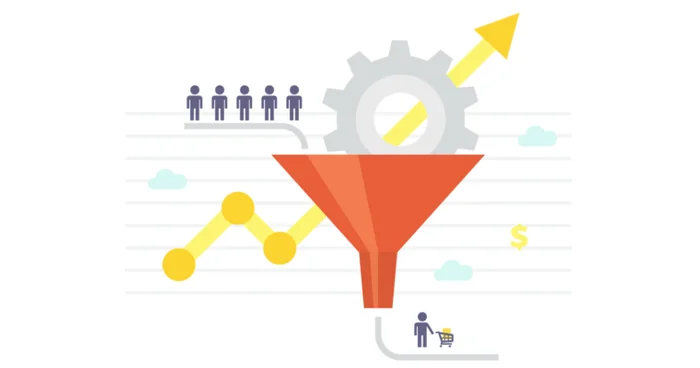Dynamic Websites = Increased Conversions
- SEO
- by Alex Stepman
- 03.14.2020

Building a speedy, attractive site with relevant content is the first step to a successful digital marketing campaign. However, too many small businesses stop at the beginning.
Over time, a website that does not update or refresh content and design risks losing traffic and rankings. In the world of search, a "finished" website is a dead website.
To meet the demands of today's information-hungry browser, you must change and improve. A static site will falter. A dynamic site will maintain rankings and increase traffic.
As we noted last week, major e-commerce brands like J.Crew refresh their websites often--every month, week, or even day--with seasonally-appropriate content.
The best local websites follow the lead of the major e-commerce brands, creating fresh content targeted to a specific population.
In the end, the goal for any business, large or small, is the same: a dynamic website.
Is a Dynamic Website Worth Your Time?
In our post last week about website refreshes, we noted that for most local business owners, the problem is time: "The smallest companies believe they just don't have the time for a simple homepage refresh, let alone a blog post."
Of course, time can be made--if a business owner believes the time is well spent.
So more to the point: Will the added time expense be worthwhile?
To answer this question, you must first understand precisely how your current website converts visitors.
The difference between your daily visitors and converted visitors defines the success of your website.
In SEO circles, this difference is called the conversion rate: the percentage of visitors who perform a desired action.
SEO Sparta emphasizes conversion rate optimization (CRO) as a crucial part of any SEO campaign, especially for our local Delaware Valley clients, and for each client, the "desired action" is inevitably different.
"When most people hear 'conversion', they think revenue," writes Glenn Gabe of Search Engine Journal.
But, Gabe adds: "Using an ecommerce site as an example, you might have several other success events, including email marketing subscriptions, contact form completions, clicks to social accounts, engagement goals like time on site or pages per visit, events like watching product videos, downloads like product specs or product guides, [and] clicks to trigger live chat with your customer service reps."
Unfortunately, most local sites have not yet defined a "success event." And obviously the same sites are not tracking conversions of any kind.
Gabe has written an insightful beginner's guide for and defining and tracking conversions: "A Beginner's Guide to Conversion Goals in Google Analytics."
Once you see clearly how your site converts customers, you can understand the value of your traffic.
If you do not currently convert customers or do not believe your website should serve that purpose, your added time expense might not be worthwhile.
(In this case, though, we have one question: What is the purpose of your site?)
If your website currently does convert customers, or you believe that your website could convert customers by better defining your conversion goals, you stand to increase your success with a dynamic site. In this case, the added time expense is worthwhile.
Want Conversions? Post New (or Refreshed) Content Often
The key to a successful web marketing campaign is to never rest on your laurels. By maintaining a dynamic website, you give visitors a reason to visit and return. Frequent updates translate to search benefits. With each new update, the search engines crawl your site, looking for the new material.
As the blog SEO Site Check Up notes in its article on fresh content:
"The more frequently you update your website with articles, downloads, and new web pages, the more frequently a search engine will stop by to visit your website. When search engines look at your site more frequently, you have the opportunity to achieve higher rankings based on the content you provide."
For larger sites, this process happens quite quickly, so posting relevant, timely content is a good way to attract attention. In a post asking "How Often Does Google Update Search Results?" the blog SEO Mechanic tells an interesting story about speedy indexing:
"Often, we could drop a new article, and see traffic from search in less than 5 minutes, if it was a timely article. One time, during an earthquake, I tested the indexing speed of our website with Google. Seconds after the earthquake I posted a simple update featuring a snapshot of the seismic activity and the location.
Within seconds our story was the number one search result tied to the Chino Hills Earthquake. We received close to 5,000 visits, in under 10 minutes, because we were the most authoritative article until the L.A Times published their piece."
SEO Mechanic is a larger site with good volume; smaller, local sites might not see the same, immediate results: "If you have a local business with low search volume," SEO Mechanic writes, "your indexing rate will be slower – sometimes painfully slow."
Remember, painfully slow does not translate to never. The key is to update frequently, to gain visitor momentum relative to your site's traffic, and to increase your traffic--and, hopefully, your conversions.
In the next few weeks, we will explore both website updates for content and design in more detail.
For now, if you have any immediate questions, please feel free to call SEO Sparta for any relevant SEO-related questions: 215-900-9398.
If you are interested in transforming your website into a money-making tool or are interested in exploring opportunities to outperform your competition, we encourage you to contact SEO SPARTA.
We combine traditional marketing methods and organic SEO--emphasizing natural website optimization--to design thoughtful, inspiring, and effective marketing campaigns.
 For a limited time, we provide website design and development for just a one-time low fee of $499.
For a limited time, we provide website design and development for just a one-time low fee of $499.